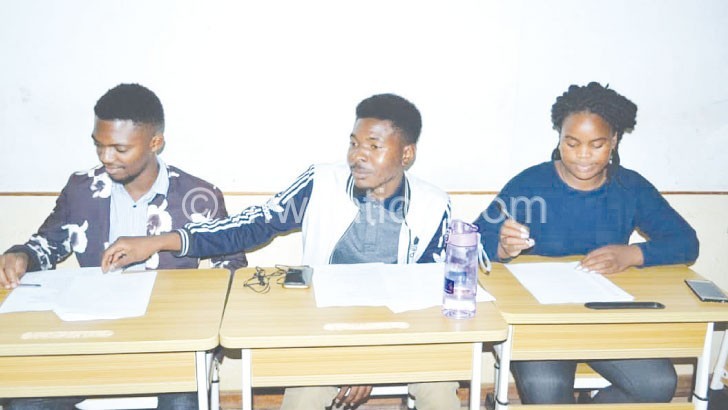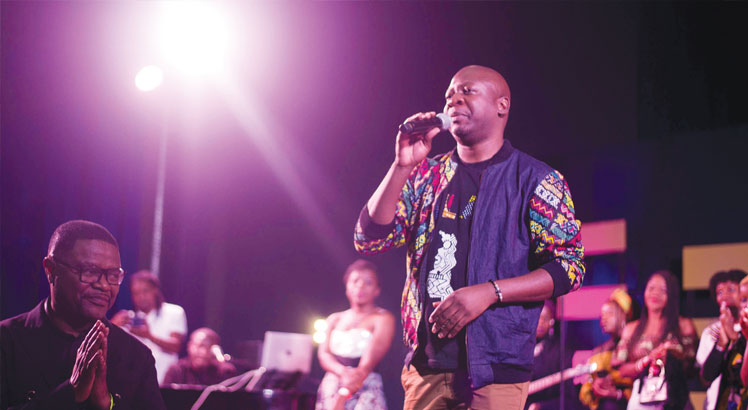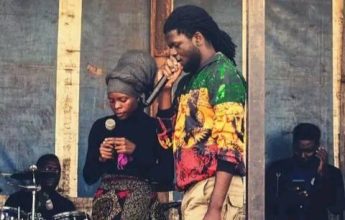A night of verse in room B
Apart from hosting tutorials, Room B at the University of Malawi’s (Unima) Chancellor College (Chanco) is renowned for being a workshop for writers critiquing literary works every Thursday evening.
The Writers’ Workshop itself is as old as the Chanco campus in Zomba which opened in 1973. Then, the literary discussions used to take place at the Senior Common Room before finding a home in Room B.

Situated along the Administration Corridor down the School of Law, the room has remained a haven for writers 45 years on. And on November 8, the room saw another discussion take place, oblivious of the chatter from students passing in the long corridors outside.
On this chilly night, writers discussed four pieces of poetry: Amarantha,Gowokani, Catalayah and Anonymous.
The first was Phindu Banda’s Amarantha in which the persona is cautioning young women not to fall prey to men’s sweet promises as their intentions, just as those of bees that suck a flower dry of its nectar, are bad.
From the second stanza the warning goes: “When that boy with skin like earth comes to you/And whispers sweet nothings in your ear/When he whispers that you are more beautiful than the flowers the Lord made/Take a step back, look him in the eyes and say ‘Thank you, I know.”
Commenting on the imagery of the poem, Pemphero Kathumba observed that Amarantha symbolises the flower of immortality.
“Amarantha is a flower that is believed to never fade or die. It is this flower that a young man is comparing to a woman whom he has fallen in love with in the poem,” he observed.
However, the woman in the poem sees through the deceit in the man and speaks to herself, thus: “Remind yourself that flowers die when they are picked.”
And in his contribution, head of English Department Ken Lipenga Junior (PhD)mentioned the irony in the title Amarantha.
“The title is ironic when it says it is immortal, yet, flowers fade, just as beauty itself,” observed Lipenga.
Banda’s second poem, Gowokani, is an apology to anyone the persona might have offended wittingly or otherwise whose tone is angry and defiant at the same time.
“To every woman I have scandalised, knowingly or otherwise/With my tongue ignoring the ways of our kind, having the lights of its own/Or my feet taking me to places forbidden to the chitenje-clad group I belong to/It was never my intention to leave a cloud of dust in my wake/Just that/Sometimes I took ‘fumbi ndiwe mwini’ too far,” reads third stanza.
Lipenga opined that society is limiting the freedom of the individual in this poem and the struggle is that of the self against society.
“There is an acknowledgement that human beings are not perfect. That is why the persona does not care about what people will say to her, bubbling with anger because society is defining her,” he argued.
Arguably, the individual’s struggle to assert herself in society is a motif in Phindu’s poetry, taking the path of the old age philosophical dilemma on the illusion of freedom as postulated by the French philosopher Jean Jacques Rousseau who said man was born free but is everywhere in chains.
Then Anonymous by Pemphero Kathumba is a poem in which the persona rues the lost chances of life with the message going to the unknown addressee with a tone of regret for having failed to achieve things in life because of procrastination.
“I am the portrait Da Vinci would’ve painted/The ‘tragedy’ Shakespeare took to his grave/The years Bingu never saw through/ ‘Dear Papa’ Tupac would have released,” reads the first four lines.
Reading the poem one discovers that the poet was inspired by Robert Frost’s poem The Road Not Taken as it portrays someone who had squandered his productive years of life pursuing mundane appetites instead of working hard to get important things.
The last piece for the night was Catalayah by Wendy Hara, a poem addressing gender based violence issues.
“Because of a man who knew only of planting his seed inside me but could never tend to the flower that was to grow/Throwing fists/Throwing knives/Throwing me/And one day I hit the ground/And you shattered/And I bled/and you bled too/and you died/and I died too,” reads the final stanza.
Lipenga’s take in this poem was the contrast of the innocence and brutality depicted in stanza one line five which goes thus: “The tiny footprints you made on the home we shared, I could never erase them, and you had me wrapped around your finger while his fingers were wrapped around my neck.”
In the end, Banda asked Lipenga to give his observation on modern poetry in comparison to the traditional poetry written by the generation of Jack Mapanje, Steve Chimombo, Anthony Nazombe, Frank Chipasula, Zondiwe Mbano and others.
Lipenga observed that the emerging poetry in Malawi both in vernacular and English language lacks criticism that was there during the time of the generation of the Mapanjes.
“Poems are being produced but the criticism is not there. The Mapanjes and others had their poems critiqued. That is what made their works attain high quality,” he explained.
At 7.51pm, the writers, with faces beaming with joy, made their way out, some heading to the library and others to their residence halls, satisfied with an hour well spent in Room B. n





